| Grade (AWS A 5.16) | Size (mm) | Typical Analysis of Filler Wire | Typical All Weld Mechanical Properties | Applications | ||||||||
| C | O | H | N | Fe | Ti | Y.P. N/mm2 (ksi) | T.S. N/mm2 (ksi) | EI. (%) | I.V. J (kgf-m) | |||
| ER Ti-1 | 2.4 3.2 4.0 5.0 Length 1000 | 0.30 | 0.100 | 0.005 | 0.015 | 0.100 | Bal. | 172 (25) min | 241 (35) min | 24 min | - | For welding commercial pure titanium alloys commonly found in application requiring high temp. resistance and resistance to chemical re-agents. |
| ER Ti-2 | 0.03 | 0.100 | 0.008 | 0.02 | 0.200 | Bal. | 345 (50) | 276 (40) | 20 | - | Most widely used titanium alloy for industrial application because of its good balance of strength. | |
| ER Ti-5 | 0.05 | 0.180 | 0.015 | 0.03 | 0.300 | Bal. AI5.5-6.7 V 3.8-4.5 | 827 (120) min | 896 (130 ) min | 10 min | - | For high Fatigue strength, toughness,and are heat treble. | |
| ER Ti-5 | 0.03 | 0.10 | 0.008 | 0.020 | 0.020 | Bal Pd 0.12-0.25 | This alloy extends the use of titanium into mildly reducing media, to much higher chloride levels, or where the environment fluctuates between oxidizing and reducing. | |||||
 |
Titanium Filler WiresCommercially pure titanium and most titanium alloys are readily welded by a number of welding processes being used today. The most common method of joining titanium is the gas tungsten-arc (GTAW) process and secondarily, the gas metal-arc (GMAW) process. Others include electron beam and more recently laser welding as well as solid state diffusion bonding. Titanium and it's alloys also can be joined by resistance welding and by brazing. Welding Environment :-
|
|||
|
Product Details
|
||
| Brand | : | |
| Place of Origin | : | Not Given |
| FOB Price | : | |
| Minimum Order Quantity | : | Not Given |
| Supply Ability | : | |
|
Packaging & Delivery
|
||
| Packaging Detail | : | Not Given |
| Delivery Detail | : | Not Given |
| Other Products |
 STAINLESS & DUPLEX S ...
STAINLESS & DUPLEX S ... STAINLESS & DUPLEX S ...
STAINLESS & DUPLEX S ...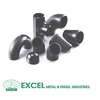 CARBON & ALLOY STEEL ...
CARBON & ALLOY STEEL ... NICKEL & COPPER ALLO ...
NICKEL & COPPER ALLO ... ALUMINIUM & ALUMINIU ...
ALUMINIUM & ALUMINIU ... steel pipe
steel pipe Flanges
Flanges Bolts and Nuts
Bolts and Nuts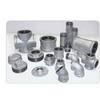 Industrial Pipe Fitt ...
Industrial Pipe Fitt ... Stainless Steel Fitt ...
Stainless Steel Fitt ... Pipe Fitting
Pipe Fitting Alloy Steel Elbow
Alloy Steel Elbow Duplex Steel Elbow
Duplex Steel Elbow Titanium Pipe Fittin ...
Titanium Pipe Fittin ... Concentric Reducer
Concentric Reducer Eccentric Reducer
Eccentric Reducer Elbow 45 Deg
Elbow 45 Deg Elbow 180 Deg
Elbow 180 Deg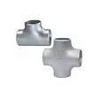 Equal Tee and Cross
Equal Tee and Cross Unequal Tee
Unequal Tee Reducer
Reducer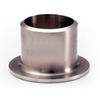 Stub End
Stub End Copper Nickel Alloy ...
Copper Nickel Alloy ...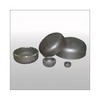 Cap
Cap Nippolets
Nippolets Forged Threaded Fitt ...
Forged Threaded Fitt ... Alloy Steel Reducer
Alloy Steel Reducer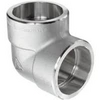 Forged Elbow
Forged Elbow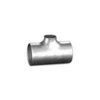 Butweld Unequal Tee
Butweld Unequal Tee Butweld Equal Tee
Butweld Equal Tee Duplex Pipe Fittings ...
Duplex Pipe Fittings ... Monel Pipe Fittings
Monel Pipe Fittings Copper Pipe Fitting
Copper Pipe Fitting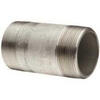 Nipple
Nipple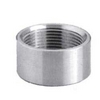 Half Coupling
Half Coupling Full Coupling
Full Coupling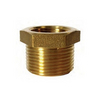 Hexagon Reducing Bus ...
Hexagon Reducing Bus ... Swage Nipple
Swage Nipple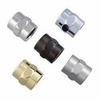 Stainless Steel Coup ...
Stainless Steel Coup ...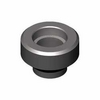 End Cap
End Cap Barrel Nipples
Barrel Nipples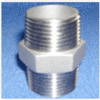 Hexagon Nipples
Hexagon Nipples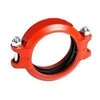 Victaulic Coupling
Victaulic Coupling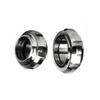 SMS Union
SMS Union Carbon Steel Lap Joi ...
Carbon Steel Lap Joi ... Socket Weld Flanges
Socket Weld Flanges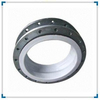 Expansion Joints
Expansion Joints Olets
Olets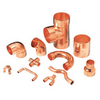 Copper Fittings
Copper Fittings Fittings
Fittings Short Radius Return ...
Short Radius Return ...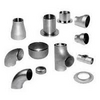 Galvanized Butt Weld ...
Galvanized Butt Weld ... Pipe Nipples
Pipe Nipples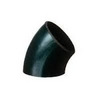 Carbon Steel Forged ...
Carbon Steel Forged ...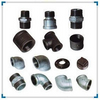 Water Pipe Fittings
Water Pipe Fittings Mild Steel Butt Weld ...
Mild Steel Butt Weld ...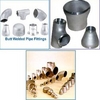 Stainless Steel Butt ...
Stainless Steel Butt ... Alloy Steel Pipes
Alloy Steel Pipes Butweld Reducing Tee ...
Butweld Reducing Tee ... Carbon Steel Elbow
Carbon Steel Elbow Nickel Bends
Nickel Bends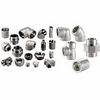 Screwed Pipe Fitting ...
Screwed Pipe Fitting ...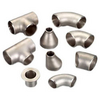 Seamless Pipe Fittin ...
Seamless Pipe Fittin ... Threaded Forged Pipe ...
Threaded Forged Pipe ... Threaded Forged Pipe ...
Threaded Forged Pipe ... Pipe Fittings
Pipe Fittings Carbon Steel Pipe Fi ...
Carbon Steel Pipe Fi ... Stainless Steel Elbo ...
Stainless Steel Elbo ... MS Fittings
MS Fittings Elbow 90 Deg
Elbow 90 Deg Hastelloy Fittings
Hastelloy Fittings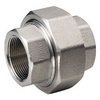 Pipe Unions
Pipe Unions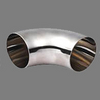 LR Bend
LR Bend Butt Weld Tee
Butt Weld Tee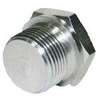 Hex Head Plug
Hex Head Plug Swage Nipples
Swage Nipples Bend
Bend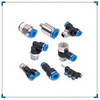 Pneumatic Tube Fitti ...
Pneumatic Tube Fitti ...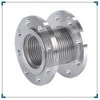 Stainless Steel Bell ...
Stainless Steel Bell ... Pipe Clamps
Pipe Clamps High Pressure Fittin ...
High Pressure Fittin ...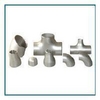 Butt Weld Fittings
Butt Weld Fittings IBR Carbon Steel For ...
IBR Carbon Steel For ...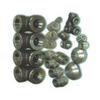 Alloy Steel Forged F ...
Alloy Steel Forged F ... Socket Weld Fittings ...
Socket Weld Fittings ...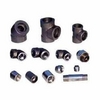 Nickel Alloy Forged ...
Nickel Alloy Forged ...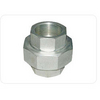 Union Fitting
Union Fitting Forged Fittings
Forged Fittings Carbon Steel Threado ...
Carbon Steel Threado ...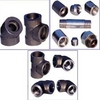 Stainless Steel Forg ...
Stainless Steel Forg ...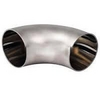 Long Radius Bend
Long Radius Bend Bushing
Bushing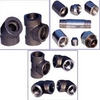 Carbon Steel Forged ...
Carbon Steel Forged ...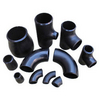 Alloy Steel Buttweld ...
Alloy Steel Buttweld ...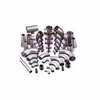 Nickel Alloy Buttwel ...
Nickel Alloy Buttwel ... Carbon Steel Buttwel ...
Carbon Steel Buttwel ... Inconel Fitting
Inconel Fitting Socket Weld Reducer
Socket Weld Reducer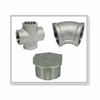 Mild Steel Forged Fi ...
Mild Steel Forged Fi ... GI Pipe Fittings
GI Pipe Fittings 3D Elbow
3D Elbow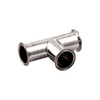 Dairy Fitting
Dairy Fitting Pipe Caps
Pipe Caps Industrial Flanges
Industrial Flanges Stainless Steel Flan ...
Stainless Steel Flan ... Carbon Steel Flanges ...
Carbon Steel Flanges ... Flanges
Flanges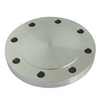 BLRF Flanges
BLRF Flanges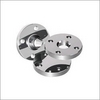 Carbon Steel Forged ...
Carbon Steel Forged ... Sorf Flanges
Sorf Flanges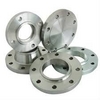 Monel Flanges
Monel Flanges Inconel Flanges
Inconel Flanges Duplex Steel Flanges ...
Duplex Steel Flanges ... Super Duplex Flanges ...
Super Duplex Flanges ... Forged Flanges
Forged Flanges Lap Joint Flanges
Lap Joint Flanges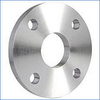 DIN Flanges
DIN Flanges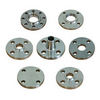 PN Flange
PN Flange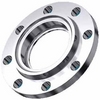 SWRF Flanges
SWRF Flanges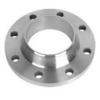 WNRF Flanges
WNRF Flanges Spectacle Flanges
Spectacle Flanges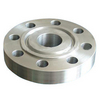 RTJ Flanges
RTJ Flanges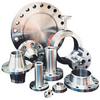 ANSI Flanges
ANSI Flanges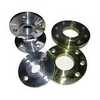 Alloy Flanges
Alloy Flanges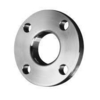 Flat Face Flanges
Flat Face Flanges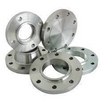 ASTM Flanges
ASTM Flanges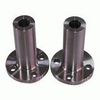 Long Weld Neck Flang ...
Long Weld Neck Flang ... Stainless Steel Thre ...
Stainless Steel Thre ... Stainless Steel Weld ...
Stainless Steel Weld ... Stainless Steel Slip ...
Stainless Steel Slip ...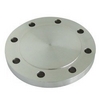 Stainless Steel Blin ...
Stainless Steel Blin ... BS Flanges
BS Flanges Copper Flanges
Copper Flanges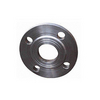 Slip On Flanges
Slip On Flanges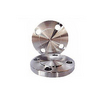 Blind Flanges
Blind Flanges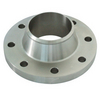 Weldneck Flanges
Weldneck Flanges Reducing Flanges
Reducing Flanges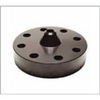 Carbon Steel Reducin ...
Carbon Steel Reducin ...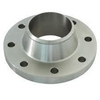 Carbon Steel Weld Ne ...
Carbon Steel Weld Ne ... Custom Flange
Custom Flange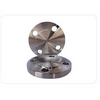 Blank Flanges
Blank Flanges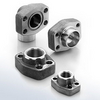 SAE Flanges
SAE Flanges Square Flanges
Square Flanges Pipe Flanges
Pipe Flanges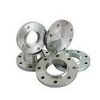 Forging, Flanges
Forging, Flanges Vacuum Fittings & Fl ...
Vacuum Fittings & Fl ... Cu-Ni Composite Flan ...
Cu-Ni Composite Flan ... Aluminum Flanges
Aluminum Flanges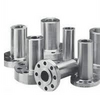 Carbon Steel Long We ...
Carbon Steel Long We ...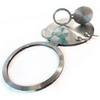 Spectacle Blind Flan ...
Spectacle Blind Flan ...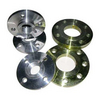 Alloy Steel Flanges
Alloy Steel Flanges Alloy Steel Flanges
Alloy Steel Flanges Titanium Flanges
Titanium Flanges Steel Flanges
Steel Flanges Copper Nickel Flange ...
Copper Nickel Flange ...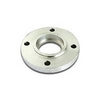 Carbon Steel Socket ...
Carbon Steel Socket ...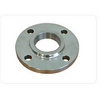 Threaded Flanges
Threaded Flanges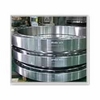 Mild Steel Flanges
Mild Steel Flanges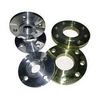 High Nickel Alloy Fl ...
High Nickel Alloy Fl ...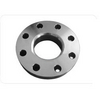 Stainless Steel Lap ...
Stainless Steel Lap ...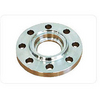 Stainless Steel Sock ...
Stainless Steel Sock ... Plate Blank Flanges
Plate Blank Flanges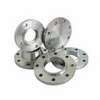 Nickel Alloy Flanges ...
Nickel Alloy Flanges ... Dovetail O-Ring Groo ...
Dovetail O-Ring Groo ... Plate Flanges
Plate Flanges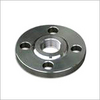 Screwed Flanges
Screwed Flanges UHV Conflat Flanges
UHV Conflat Flanges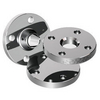 SS Flanges
SS Flanges Composite Flanges
Composite Flanges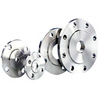 Flanges
Flanges Flat Flange
Flat Flange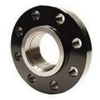 Carbon Steel Screwed ...
Carbon Steel Screwed ... Conflat Flanges
Conflat Flanges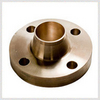 Copper Nickel Screwe ...
Copper Nickel Screwe ... Hastelloy Flanges
Hastelloy Flanges MS Flanges
MS Flanges JIS Flanges
JIS Flanges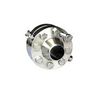 Orifice Flange
Orifice Flange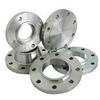 ASME Flanges
ASME Flanges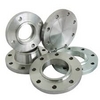 Flanges
Flanges Forged Steel Flanges ...
Forged Steel Flanges ... Instrumentation Fitt ...
Instrumentation Fitt ...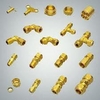 Brass Compression Fi ...
Brass Compression Fi ...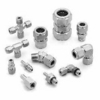 Tube Fitting
Tube Fitting Adapter
Adapter Union Elbow
Union Elbow Male Elbow
Male Elbow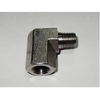 Female Elbow
Female Elbow Male Connector
Male Connector Female Connector
Female Connector Straight Union
Straight Union Bulk Head Union
Bulk Head Union Union Tee
Union Tee Union Cross
Union Cross Syphon Tube
Syphon Tube Reducing Union
Reducing Union Male Adapter
Male Adapter Female Adapter
Female Adapter Male Pipe Weld Conne ...
Male Pipe Weld Conne ... Male Run Tee
Male Run Tee Elbow Union
Elbow Union Male Branch Tee
Male Branch Tee Tube Cap
Tube Cap Tube Plug
Tube Plug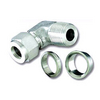 Double Ferrule Fitti ...
Double Ferrule Fitti ...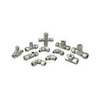 Double Ferrule Compr ...
Double Ferrule Compr ...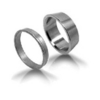 Ferrule - Front / Ba ...
Ferrule - Front / Ba ... Male Tee
Male Tee Female Tee
Female Tee Hex Reducing Nipple
Hex Reducing Nipple Long Nipple
Long Nipple Nut
Nut Tube Plug
Tube Plug Tube Cap
Tube Cap Quick Release Coupli ...
Quick Release Coupli ...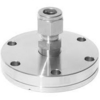 Flange to Tube Adapt ...
Flange to Tube Adapt ... JIC Fittings
JIC Fittings Male Pipe Weld Conne ...
Male Pipe Weld Conne ... Bulkhead Male Connec ...
Bulkhead Male Connec ... Bulkhead Reducer
Bulkhead Reducer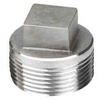 Head Plug
Head Plug Compression Fittings ...
Compression Fittings ...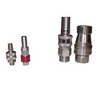 Quick Release Coupli ...
Quick Release Coupli ... Sockolets
Sockolets Brass Nipples
Brass Nipples Instrumentation Fitt ...
Instrumentation Fitt ... Hydraulic Fitting
Hydraulic Fitting Snubber
Snubber Ferrule Fittings
Ferrule Fittings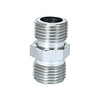 Hex Nipples
Hex Nipples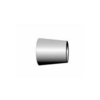 Reducer Insert
Reducer Insert Flare Fitting
Flare Fitting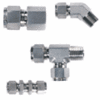 Compression Tube Fit ...
Compression Tube Fit ...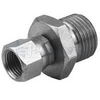 Swivel Adapter
Swivel Adapter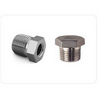 Plugs And Bushing Fi ...
Plugs And Bushing Fi ... Hex Head Bushing
Hex Head Bushing Coupling
Coupling Brass Fittings
Brass Fittings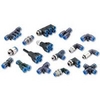 Push In Fitting
Push In Fitting Bulkhead Reducer
Bulkhead Reducer Pipes & Tubes
Pipes & Tubes Stainless Steel Pipe ...
Stainless Steel Pipe ... PVC Coated Copper Tu ...
PVC Coated Copper Tu ...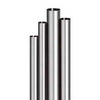 Pipes And Tubes
Pipes And Tubes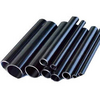 Alloy Steel Pipes
Alloy Steel Pipes Stainless Steel Tube ...
Stainless Steel Tube ... Brass Pipes
Brass Pipes Hastelloy Pipes
Hastelloy Pipes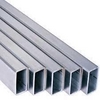 Rectangular Pipes
Rectangular Pipes Square Tubes
Square Tubes SA335 P11 Seamless P ...
SA335 P11 Seamless P ...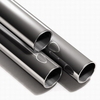 202 Stainless Steel ...
202 Stainless Steel ... Super Duplex Pipes
Super Duplex Pipes MS Pipe
MS Pipe Instrumentation Tube ...
Instrumentation Tube ...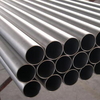 Alloy Steel Pipe
Alloy Steel Pipe Aluminium Pipe
Aluminium Pipe Duplex Steel Pipes
Duplex Steel Pipes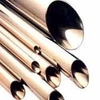 Nickel Alloy Pipes
Nickel Alloy Pipes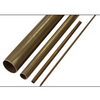 Bronze Pipe
Bronze Pipe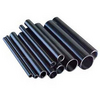 Carbon Steel Tube
Carbon Steel Tube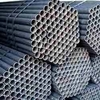 IBR Carbon Steel Pip ...
IBR Carbon Steel Pip ...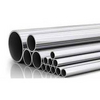 Stainless Steel Seam ...
Stainless Steel Seam ...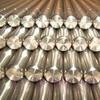 304 Stainless Steel ...
304 Stainless Steel ...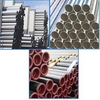 Carbon Steel Pipes
Carbon Steel Pipes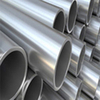 Inconel Pipes
Inconel Pipes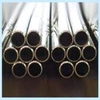 IBR Tube
IBR Tube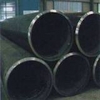 A106 Gr.B Seamless P ...
A106 Gr.B Seamless P ...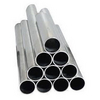 Welded Pipes
Welded Pipes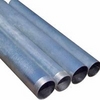 GI Pipes
GI Pipes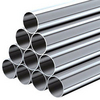 Alloy Steel Pipes
Alloy Steel Pipes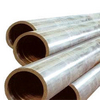 Nickle Pipes
Nickle Pipes BS 3059 Boiler Tubes ...
BS 3059 Boiler Tubes ...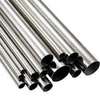 Seamless Tubes
Seamless Tubes Seamless Pipe
Seamless Pipe Seamless Pipe
Seamless Pipe Boiler Tube
Boiler Tube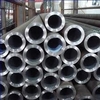 ASTM A179 Seamless T ...
ASTM A179 Seamless T ...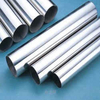 Titanium Pipes
Titanium Pipes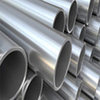 Inconel Tube
Inconel Tube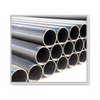 Mild Steel Pipes
Mild Steel Pipes Tubes & Pipes
Tubes & Pipes Reformer Tubes
Reformer Tubes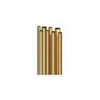 Cupro Nickel Pipe
Cupro Nickel Pipe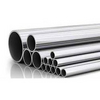 Stainless Steel Hydr ...
Stainless Steel Hydr ...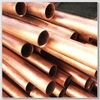 Copper Pipes
Copper Pipes Stainless Steel Elec ...
Stainless Steel Elec ... API 5L Gr.B Seamless ...
API 5L Gr.B Seamless ... Large Diameter Pipe
Large Diameter Pipe Sheet - Plates - Coi ...
Sheet - Plates - Coi ...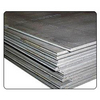 Aluminum Alloy Sheet ...
Aluminum Alloy Sheet ... Coils
Coils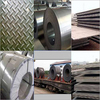 Steel Sheets, Plates ...
Steel Sheets, Plates ... High Tensile Steel P ...
High Tensile Steel P ... Chequred Plate
Chequred Plate Titanium Plate
Titanium Plate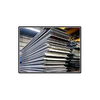 Boiler Quality Plate ...
Boiler Quality Plate ...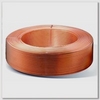 Copper Coils
Copper Coils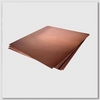 Copper Plates
Copper Plates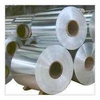 Aluminum Coils
Aluminum Coils Plates
Plates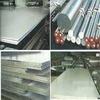 Monel Sheets
Monel Sheets Clad Metals
Clad Metals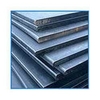 Inconel Plates
Inconel Plates Aluminum Chequered P ...
Aluminum Chequered P ...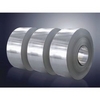 Stainless Steel Coil ...
Stainless Steel Coil ... Stainless Steel Shee ...
Stainless Steel Shee ...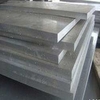 Aluminium Alloy Plat ...
Aluminium Alloy Plat ... Aluminum Checkered S ...
Aluminum Checkered S ...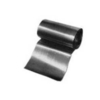 Lead Sheet
Lead Sheet Perforated Sheet
Perforated Sheet Aluminum Sheets
Aluminum Sheets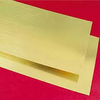 Brass Sheets
Brass Sheets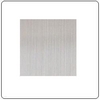 Stainless Steel Shee ...
Stainless Steel Shee ... Super Duplex Steel S ...
Super Duplex Steel S ... Shim
Shim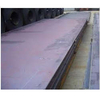 Hardox Plates
Hardox Plates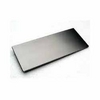 Nickel Alloy Sheets
Nickel Alloy Sheets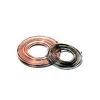 Cupro Nickel Coils
Cupro Nickel Coils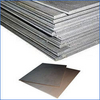 Metal Sheets
Metal Sheets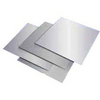 Nickel Plates
Nickel Plates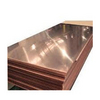 Phosphor Bronze Shee ...
Phosphor Bronze Shee ...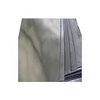 Hastelloy Sheets
Hastelloy Sheets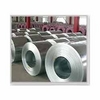 Mild Steel Sheets
Mild Steel Sheets Low Alloys Steel Pla ...
Low Alloys Steel Pla ... Fasteners
Fasteners Fasteners
Fasteners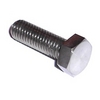 Titanium Fastener
Titanium Fastener Duplex Fastener
Duplex Fastener U Bolt
U Bolt Wedge Anchor
Wedge Anchor Wedge Anchor
Wedge Anchor Wedge Anchor
Wedge Anchor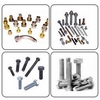 Fastener
Fastener Stud Bolt
Stud Bolt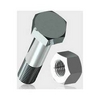 Inconel Fasteners
Inconel Fasteners Titanium Bolt
Titanium Bolt Hastelloy Fasteners
Hastelloy Fasteners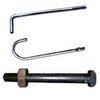 Foundation Bolt
Foundation Bolt Washer
Washer Allen Cap
Allen Cap Nuts, Bolts
Nuts, Bolts Stainless Steel Fast ...
Stainless Steel Fast ... Nickel Fasteners
Nickel Fasteners Plasma Consumables
Plasma Consumables Plasma Spares HPR
Plasma Spares HPR Thermal Dynamics Pla ...
Thermal Dynamics Pla ... Kjellberg Plasma Con ...
Kjellberg Plasma Con ...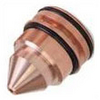 HSD 130
HSD 130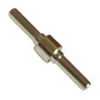 Panasonic Plasma Con ...
Panasonic Plasma Con ... Powermax 105 Consuma ...
Powermax 105 Consuma ... SAF Plasma Consumabl ...
SAF Plasma Consumabl ... Plasma Spare Parts
Plasma Spare Parts HPR 400XD
HPR 400XD MIG Welding Spare Pa ...
MIG Welding Spare Pa ... Powermax 65-85-105
Powermax 65-85-105 Ajan Consumables
Ajan Consumables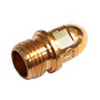 Trafimet Plasma Cons ...
Trafimet Plasma Cons ...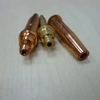 Oxy Fuel Consumables ...
Oxy Fuel Consumables ... Electrodes Hyperther ...
Electrodes Hyperther ...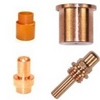 Powermax Parts
Powermax Parts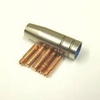 Cebora Spare
Cebora Spare ESAB Plasma Consumab ...
ESAB Plasma Consumab ...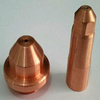 HPR 130
HPR 130 HPR 260
HPR 260 Kjellberg Hifocus
Kjellberg Hifocus Trumpf Laser Consuma ...
Trumpf Laser Consuma ... Messer Oxy Fuel
Messer Oxy Fuel Esab L-Tec Cutting T ...
Esab L-Tec Cutting T ... Hypertherm Plasma Co ...
Hypertherm Plasma Co ...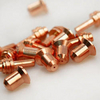 Miller Consumable
Miller Consumable Hypertherm Torch Coo ...
Hypertherm Torch Coo ... Hypertherm Consumabl ...
Hypertherm Consumabl ... Hypertherm Powermax ...
Hypertherm Powermax ... Hypertherm Powermax ...
Hypertherm Powermax ... Powermax 45
Powermax 45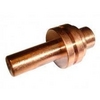 Hypertherm Max 20
Hypertherm Max 20 HPR 260 Hypertherm C ...
HPR 260 Hypertherm C ... Powermax 30 Parts
Powermax 30 Parts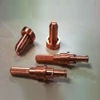 MAX 200
MAX 200 HT 2000
HT 2000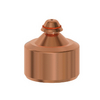 Nozzles Hypertherm
Nozzles Hypertherm Industrial Consumabl ...
Industrial Consumabl ... Air Plasma Consumabl ...
Air Plasma Consumabl ... Harris Oxy Fuel
Harris Oxy Fuel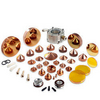 Bystronic Laser Cons ...
Bystronic Laser Cons ...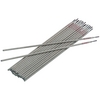 Welding Consumables
Welding Consumables Tungsten Electrode
Tungsten Electrode Tig Welding Rod
Tig Welding Rod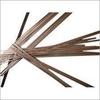 Brazing Rods
Brazing Rods Filler Wire
Filler Wire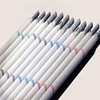 Satellite Filler Wir ...
Satellite Filler Wir ...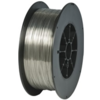 Flux Cored Wires
Flux Cored Wires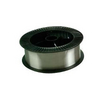 Welding Wires
Welding Wires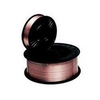 Copper And Cu-Ni Wel ...
Copper And Cu-Ni Wel ...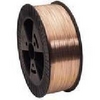 Aluminum Alloy Weldi ...
Aluminum Alloy Weldi ... Titanium Welding Wir ...
Titanium Welding Wir ... Welding Equipments
Welding Equipments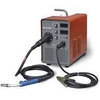 Welding Machine
Welding Machine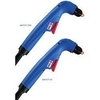 Air Plasma Cutting T ...
Air Plasma Cutting T ... Hose Assemblies
Hose Assemblies S.S Hose Flexible Pi ...
S.S Hose Flexible Pi ... PVC Braided Hose
PVC Braided Hose Teflon Hose
Teflon Hose Corrugated Flexible ...
Corrugated Flexible ...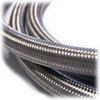 Stainless Steel Brai ...
Stainless Steel Brai ... Flexible Pipe
Flexible Pipe Hydraulic Hose Pipe ...
Hydraulic Hose Pipe ... Thread Fittings for ...
Thread Fittings for ... High Pressure Hose
High Pressure Hose Investment Casting V ...
Investment Casting V ... Needle Valves
Needle Valves Check Valves
Check Valves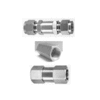 Check Valves
Check Valves Ball Valves
Ball Valves NRV Valves
NRV Valves Butterfly Valves
Butterfly Valves Globe Valves
Globe Valves Gate Valves
Gate Valves Plug Valve
Plug Valve Butterfly Valve
Butterfly Valve Valves
Valves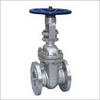 Gate Valve
Gate Valve Cocks
Cocks Valve Keys
Valve Keys Solenoid Valves
Solenoid Valves Flanged Valve
Flanged Valve Balancing Valves
Balancing Valves Gauge Valve
Gauge Valve BOLTS & NUTS
BOLTS & NUTS HYDRAULIC HOSES & FI ...
HYDRAULIC HOSES & FI ... INSTRUMENTATION
INSTRUMENTATION ALUMINIUM & ALUMINIU ...
ALUMINIUM & ALUMINIU ... VALVES
VALVES WELDING ELECTRODES
WELDING ELECTRODES WELDING EQUIPMENT & ...
WELDING EQUIPMENT & ... WELDING MACHINES
WELDING MACHINES FLANGES
FLANGES GATE VALVES
GATE VALVES STEEL SHEET
STEEL SHEET CARBON STEEL
CARBON STEEL BUTT WELD FITTINGS
BUTT WELD FITTINGS PERFORATED SHEET
PERFORATED SHEET STEEL COILS
STEEL COILS LEAD SHEET
LEAD SHEET CARBON & ALLOY STEEL ...
CARBON & ALLOY STEEL ... NICKEL & COPPER ALLO ...
NICKEL & COPPER ALLO ... NICKEL & COPPER ALLO ...
NICKEL & COPPER ALLO ... STAINLESS & DUPLEX S ...
STAINLESS & DUPLEX S ... STAINLESS & DUPLEX S ...
STAINLESS & DUPLEX S ... COPPER PLATE
COPPER PLATE COPPER TUBES
COPPER TUBES STEEL PIPE
STEEL PIPE FORGED FITTINGS
FORGED FITTINGS LONG RADIUS BEND STE ...
LONG RADIUS BEND STE ... TUBE FITTINGS
TUBE FITTINGS STEEL BENDS
STEEL BENDS TITANIUM PIPES
TITANIUM PIPES TITANIUM FLANGES
TITANIUM FLANGES TITANIUM PLATES SHEE ...
TITANIUM PLATES SHEE ... TITANIUM FASTNERS
TITANIUM FASTNERS ALLOY FLANGES
ALLOY FLANGES HASTELLOY PIPES
HASTELLOY PIPES HASTELLOY FLANGES
HASTELLOY FLANGES HASTELLOY FASTENERS
HASTELLOY FASTENERS INCONEL PIPES
INCONEL PIPES INCONEL TUBES
INCONEL TUBES INCONEL FLANGES
INCONEL FLANGES INCONEL PLATES
INCONEL PLATES INCONEL FASTENERS
INCONEL FASTENERS MONEL FLANGES
MONEL FLANGES MONEL SHEETS, PLATES ...
MONEL SHEETS, PLATES ... NICKEL ALLOY FLANGES ...
NICKEL ALLOY FLANGES ... NICKEL ALLOY FORGED ...
NICKEL ALLOY FORGED ... NICKEL ALLOY PIPES
NICKEL ALLOY PIPES NICKEL ALLOY BUTT WE ...
NICKEL ALLOY BUTT WE ... NICKEL PLATES
NICKEL PLATES NICKEL FASTENERS
NICKEL FASTENERS DAIRY FITTINGS SS
DAIRY FITTINGS SS ALUMINIUM PIPES
ALUMINIUM PIPES SEAMLESS PIPES
SEAMLESS PIPES NICKEL ALLOY SHEETS
NICKEL ALLOY SHEETS ALLOY STEEL PIPES
ALLOY STEEL PIPES ALLOY STEEL PLATES
ALLOY STEEL PLATES ALLOY STEEL BUTTWELD ...
ALLOY STEEL BUTTWELD ... ALLOY STEEL FORGED F ...
ALLOY STEEL FORGED F ... ALLOY STEEL FLANGES
ALLOY STEEL FLANGES CARBON STEEL PIPES
CARBON STEEL PIPES CARBON STEEL TUBE
CARBON STEEL TUBE CARBON STEEL BUTTWEL ...
CARBON STEEL BUTTWEL ... CARBON STEEL FORGED ...
CARBON STEEL FORGED ... CARBON STEEL FLANGES ...
CARBON STEEL FLANGES ... COPPER PIPE
COPPER PIPE SMS UNION
SMS UNION STEEL UNION
STEEL UNION SEAMLESS TUBES
SEAMLESS TUBES BRASS SHEET
BRASS SHEET BRASS PIPE
BRASS PIPE WASHERS
WASHERS BRAZING RODS
BRAZING RODS STEEL CAPS
STEEL CAPS FLEXIBLE PIPES PVC
FLEXIBLE PIPES PVC BOLTS
BOLTS STAINLESS STEEL PIPE ...
STAINLESS STEEL PIPE ... STAINLESS STEEL TUBE ...
STAINLESS STEEL TUBE ... STAINLESS STEEL BOIL ...
STAINLESS STEEL BOIL ... COILS
COILS SOLENOID VALVES
SOLENOID VALVES HIGH PRESSURE STEEL ...
HIGH PRESSURE STEEL ... STUB ENDS STAINLESS ...
STUB ENDS STAINLESS ... THREADOLETS
THREADOLETS STEEL BUSHING
STEEL BUSHING STEEL CLAMP
STEEL CLAMP ANCHOR FOUNDATION BO ...
ANCHOR FOUNDATION BO ... BRASS
BRASS EXPANSION JOINTS
EXPANSION JOINTS STAINLESS STEEL INST ...
STAINLESS STEEL INST ... STAINLESS STEEL LARG ...
STAINLESS STEEL LARG ... U BOLTS
U BOLTS COUPLINGS
COUPLINGS FULL COUPLINGS
FULL COUPLINGS HALF COUPLINGS
HALF COUPLINGS QUICK RELEASE COUPLI ...
QUICK RELEASE COUPLI ... WELDED STEEL PIPE
WELDED STEEL PIPE NUTS
NUTS FASTENERS
FASTENERS STEEL FLANGES
STEEL FLANGES STEEL PIPE FITTINGS
STEEL PIPE FITTINGS STAINLESS STEEL SEAM ...
STAINLESS STEEL SEAM ... SLIP ON FLANGES
SLIP ON FLANGES BLIND FLANGES
BLIND FLANGES WELD NECK FLANGES
WELD NECK FLANGES LAP JOINT FLANGES
LAP JOINT FLANGES THREADED FLANGES
THREADED FLANGES SPECTACLE BLIND FLAN ...
SPECTACLE BLIND FLAN ... STAINLESS STEEL FLAN ...
STAINLESS STEEL FLAN ... FORGED FLANGES
FORGED FLANGES MILD STEEL PIPE
MILD STEEL PIPE HIGH TENSILE PLATE
HIGH TENSILE PLATE HARDOX PLATE
HARDOX PLATE DUPLEX PIPE FITTINGE ...
DUPLEX PIPE FITTINGE ... BRASS FITTINGS
BRASS FITTINGS 90 DEGREE ELBOWS
90 DEGREE ELBOWS SS 304 STAINLESS STE ...
SS 304 STAINLESS STE ... STAINLESS STEEL COIL ...
STAINLESS STEEL COIL ... STAINLESS STEEL ELBO ...
STAINLESS STEEL ELBO ... STAINLESS STEEL SHIM ...
STAINLESS STEEL SHIM ... MILD STEEL
MILD STEEL STEEL FITTINGS
STEEL FITTINGS STEEL FERRULE
STEEL FERRULE STAINLESS STEEL FITT ...
STAINLESS STEEL FITT ... HEAD PLUG
HEAD PLUG STAINLESS STEEL FAST ...
STAINLESS STEEL FAST ... WEDGE ANCHORS
WEDGE ANCHORS PLATES
PLATES OLETS
OLETS FORGED STEEL FLANGES ...
FORGED STEEL FLANGES ... STAINLESS STEEL COUP ...
STAINLESS STEEL COUP ... CUPRO NICKEL PIPE
CUPRO NICKEL PIPE SCREWED PIPE FITTING ...
SCREWED PIPE FITTING ... SOCKET WELD FITTINGS ...
SOCKET WELD FITTINGS ... MONEL PIPE FITTINGS
MONEL PIPE FITTINGS RECTANGULAR PIPE
RECTANGULAR PIPE STEEL 45 DEGREE ELBO ...
STEEL 45 DEGREE ELBO ... STEEL 180 DEGREE ELB ...
STEEL 180 DEGREE ELB ... PIPE FITTINGS
PIPE FITTINGS INDUSTRIAL FLANGES
INDUSTRIAL FLANGES STAINLESS STEEL BUTT ...
STAINLESS STEEL BUTT ... CARBON STEEL ELBOW
CARBON STEEL ELBOW STEEL PIPE NIPPLE
STEEL PIPE NIPPLE SOCKET WELD FLANGE
SOCKET WELD FLANGE PLATE FLANGE
PLATE FLANGE ORIFICE FLANGE
ORIFICE FLANGE SPECTABLE FLANGE
SPECTABLE FLANGE DIN FLANGES
DIN FLANGES PN FLANGES
PN FLANGES SUPER DUPLEX FLANGES ...
SUPER DUPLEX FLANGES ... JIS FLANGE
JIS FLANGE BS FLANGE
BS FLANGE LONG WELD NECK FLANG ...
LONG WELD NECK FLANG ... STAINLESS STEEL BARR ...
STAINLESS STEEL BARR ... STAINLESS STEEL SHEE ...
STAINLESS STEEL SHEE ... IBR TUBES
IBR TUBES COPPER FITTINGS
COPPER FITTINGS MILD STEEL SHEET
MILD STEEL SHEET DUPLEX STEEL ELBOW
DUPLEX STEEL ELBOW STUD BOLTS
STUD BOLTS FORGED ELBOW
FORGED ELBOW INCONEL FITTINGS
INCONEL FITTINGS NICKEL FLANGES
NICKEL FLANGES HASTELLOY SHEETS
HASTELLOY SHEETS HASTELLOY FITTINGS
HASTELLOY FITTINGS DUPLEX STEEL PIPE
DUPLEX STEEL PIPE COPPER PIPE FITTINGS ...
COPPER PIPE FITTINGS ... ADAPTORS
ADAPTORS HYDRAULIC FITTINGS
HYDRAULIC FITTINGS UNEQUAL TEE
UNEQUAL TEE SS CONCENTRIC REDUCE ...
SS CONCENTRIC REDUCE ... SS ECCENTRIC REDUCER ...
SS ECCENTRIC REDUCER ... SQUARE TUBES
SQUARE TUBES MS PIPE
MS PIPE STAINLESS STEEL FORG ...
STAINLESS STEEL FORG ... SS UNION
SS UNION RING TYPE JOINT FLAN ...
RING TYPE JOINT FLAN ... CARBON STEEL FORGED ...
CARBON STEEL FORGED ... BUTTWELD REDUCING TE ...
BUTTWELD REDUCING TE ... PIPES AND TUBES
PIPES AND TUBES SOCKET WELD REDUCERS ...
SOCKET WELD REDUCERS ... SS COMPRESSION PIPE ...
SS COMPRESSION PIPE ... SS COCKS
SS COCKS BRASS COMPRESSION PI ...
BRASS COMPRESSION PI ... SOCKOLETS
SOCKOLETS REDUCING FLANGES
REDUCING FLANGES ELBOW
ELBOW PIPE END CAPS
PIPE END CAPS BALL VALVES
BALL VALVES CHECK VALVES
CHECK VALVES BUTTERFLY VALVE
BUTTERFLY VALVE PLUG VALVE
PLUG VALVE BUTTERFLY VALVES
BUTTERFLY VALVES NEEDLE VALVES
NEEDLE VALVES FLANGED VALVE
FLANGED VALVE GLOBE VALVES
GLOBE VALVES GAUGE VALVES
GAUGE VALVES BALANCING VALVES
BALANCING VALVES CHEQUERED PLATE
CHEQUERED PLATE MALE CONNECTOR
MALE CONNECTOR MALE RUN TEE
MALE RUN TEE FEMALE ADAPTER
FEMALE ADAPTER FEMALE CONNECTOR
FEMALE CONNECTOR PFE - FEMALE ELBOW
PFE - FEMALE ELBOW UNION TEE
UNION TEE ELBOW UNION
ELBOW UNION TUBE PLUG
TUBE PLUG FRONT FERRULE
FRONT FERRULE HEX NIPPLE
HEX NIPPLE HEX REDUCING NIPPLE
HEX REDUCING NIPPLE HEX LONG NIPPLES
HEX LONG NIPPLES FEMALE TEE
FEMALE TEE MALE TEE
MALE TEE BULKHEAD UNION
BULKHEAD UNION PIPE CAPS
PIPE CAPS STRAIGHT FITTINGS
STRAIGHT FITTINGS MALE BRANCH TEE
MALE BRANCH TEE MALE ELBOW
MALE ELBOW STAINLESS STEEL ELEC ...
STAINLESS STEEL ELEC ... SUPER DUPLEX PIPES
SUPER DUPLEX PIPES Duplex Fasteners
Duplex Fasteners Super Duplex Sheet
Super Duplex Sheet ALLOY STEEL ELBOW
ALLOY STEEL ELBOW TITANIUM PIPE FITTIN ...
TITANIUM PIPE FITTIN ... EQUAL TEE AND CROSS
EQUAL TEE AND CROSS STEEL REDUCER
STEEL REDUCER NIPPOLETS
NIPPOLETS FORGED THREADED FITT ...
FORGED THREADED FITT ... ALLOY STEEL REDUCER
ALLOY STEEL REDUCER BUTWELD UNEQUAL TEE
BUTWELD UNEQUAL TEE BUTWELD EQUAL TEE
BUTWELD EQUAL TEE STEEL NIPPLE
STEEL NIPPLE HEXAGON REDUCING BUS ...
HEXAGON REDUCING BUS ... SWAGE NIPPLE
SWAGE NIPPLE HEXAGON NIPPLES
HEXAGON NIPPLES GI PIPE FITTINGS
GI PIPE FITTINGS GI PIPES
GI PIPES BULKHEAD REDUCER
BULKHEAD REDUCER SNUBBER
SNUBBER FERRULE FITTINGS
FERRULE FITTINGS REDUCER INSERT
REDUCER INSERT FLARE FITTING
FLARE FITTING SWIVEL ADAPTER
SWIVEL ADAPTER PLUGS AND BUSHING FI ...
PLUGS AND BUSHING FI ... HEX HEAD BUSHIN
HEX HEAD BUSHIN PUSH IN FITTING
PUSH IN FITTING BRONZE PIPE
BRONZE PIPE NICKLE PIPES
NICKLE PIPES REFORMER TUBES
REFORMER TUBES STAINLESS STEEL HYDR ...
STAINLESS STEEL HYDR ... ALUMINUM ALLOY SHEET ...
ALUMINUM ALLOY SHEET ... BOILER QUALITY PLATE ...
BOILER QUALITY PLATE ... ALUMINUM COILS
ALUMINUM COILS CLAD METALS
CLAD METALS ALUMINUM CHEQUERED P ...
ALUMINUM CHEQUERED P ... ALUMINIUM ALLOY PLAT ...
ALUMINIUM ALLOY PLAT ... ALUMINUM CHECKERED S ...
ALUMINUM CHECKERED S ... CUPRO NICKEL COILS
CUPRO NICKEL COILS METAL SHEETS
METAL SHEETS PHOSPHOR BRONZE SHEE ...
PHOSPHOR BRONZE SHEE ... PLASMA CONSUMABLES
PLASMA CONSUMABLES PLASMA SPARES HPR
PLASMA SPARES HPR THERMAL DYNAMICS PLA ...
THERMAL DYNAMICS PLA ... KJELLBERG PLASMA CON ...
KJELLBERG PLASMA CON ... HSD 130
HSD 130 105 CONSUMABLES
105 CONSUMABLES SAF PLASMA CONSUMABL ...
SAF PLASMA CONSUMABL ... PLASMA SPARE PARTS
PLASMA SPARE PARTS HPR 400XD
HPR 400XD MIG WELDING SPARE PA ...
MIG WELDING SPARE PA ... POWERMAX 65-85-105
POWERMAX 65-85-105 AJAN CONSUMABLES
AJAN CONSUMABLES TRAFIMET PLASMA CONS ...
TRAFIMET PLASMA CONS ... OXY FUEL CONSUMABLES ...
OXY FUEL CONSUMABLES ... ELECTRODES HYPERTHER ...
ELECTRODES HYPERTHER ... POWERMAX PARTS
POWERMAX PARTS CEBORA SPARE
CEBORA SPARE ESAB PLASMA CONSUMAB ...
ESAB PLASMA CONSUMAB ... HPR 130
HPR 130 HPR 260
HPR 260 KJELLBERG HIFOCUS
KJELLBERG HIFOCUS TRUMPF LASER CONSUMA ...
TRUMPF LASER CONSUMA ... MESSER OXY FUEL
MESSER OXY FUEL ESAB L TEC CUTTING T ...
ESAB L TEC CUTTING T ... HYPERTHERM PLASMA CO ...
HYPERTHERM PLASMA CO ... MILLER CONSUMABLE
MILLER CONSUMABLE HYPERTHERM TORCH COO ...
HYPERTHERM TORCH COO ... HYPERTHERM CONSUMABL ...
HYPERTHERM CONSUMABL ... HYPERTHERM POWERMAX ...
HYPERTHERM POWERMAX ... MAX 200
MAX 200 HT 2000
HT 2000 NOZZLES HYPERTHERM
NOZZLES HYPERTHERM COPPER INDUSTRIAL CO ...
COPPER INDUSTRIAL CO ... AIR PLASMA CONSUMABL ...
AIR PLASMA CONSUMABL ... HARRIS OXY FUEL NOZZ ...
HARRIS OXY FUEL NOZZ ... BYSTRONIC LASER CONS ...
BYSTRONIC LASER CONS ... TUNGSTEN ELECTRODE
TUNGSTEN ELECTRODE TIG WELDING ROD
TIG WELDING ROD FILLER WIRE
FILLER WIRE SATELLITE FILLER WIR ...
SATELLITE FILLER WIR ... TITANIUM FILLER WIRE ...
TITANIUM FILLER WIRE ... FLUX CORED WIRES
FLUX CORED WIRES WELDING WIRES
WELDING WIRES COPPER AND CU-NI WEL ...
COPPER AND CU-NI WEL ... ALUMINUM ALLOY WELDI ...
ALUMINUM ALLOY WELDI ... TITANIUM WELDING WIR ...
TITANIUM WELDING WIR ... AIR PLASMA CUTTING T ...
AIR PLASMA CUTTING T ... STEEL HOSE ASSEMBLIE ...
STEEL HOSE ASSEMBLIE ... PVC BRAIDED HOSE
PVC BRAIDED HOSE TEFLON HOSE
TEFLON HOSE CORRUGATED FLEXIBLE ...
CORRUGATED FLEXIBLE ... STAINLESS STEEL BRAI ...
STAINLESS STEEL BRAI ... THREAD FITTINGS FOR ...
THREAD FITTINGS FOR ... HIGH PRESSURE HOSE
HIGH PRESSURE HOSE INVESTMENT CASTING V ...
INVESTMENT CASTING V ... NRV VALVES
NRV VALVES VALVE KEYS
VALVE KEYS TUBE FITTINGS
TUBE FITTINGS TUBE FITTINGS
TUBE FITTINGS TUBE FITTINGS
TUBE FITTINGS TUBE FITTINGS
TUBE FITTINGS TUBE FITTINGS
TUBE FITTINGS INSTRUMENTATION FITT ...
INSTRUMENTATION FITT ... INSTRUMENTATION FITT ...
INSTRUMENTATION FITT ... Hydraulic Pipe Clamp ...
Hydraulic Pipe Clamp ... Hydraulic Pipe Clamp ...
Hydraulic Pipe Clamp ... Hydraulic Pipe Clamp ...
Hydraulic Pipe Clamp ... Hydraulic Pipe Clamp ...
Hydraulic Pipe Clamp ... Hydraulic Pipe Clamp ...
Hydraulic Pipe Clamp ... HSS Saw Blade
HSS Saw Blade Eye Bolt
Eye Bolt Eye Bolt
Eye Bolt Eye Bolt
Eye Bolt Split Tee
Split Tee HAMMER UNION
HAMMER UNION Pup Joints
Pup Joints Half pipe Sleeves
Half pipe Sleeves Half pipe Sleeves
Half pipe Sleeves Half pipe Sleeves
Half pipe Sleeves RTJ Gaskets
RTJ Gaskets API Casing Pipe Coup ...
API Casing Pipe Coup ... Stud Bolt
Stud Bolt Stud Bolt
Stud Bolt Stud Bolt
Stud Bolt Stud Bolt
Stud Bolt
